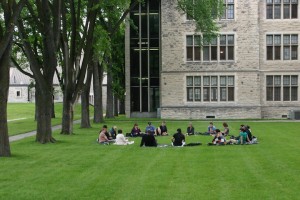 December 4, 2012 – Canadian School of Peacebuilding (CSOP), an annual summer peace and justice program of Canadian Mennonite University (CMU), in 2013 welcomes seven renowned instructors over two weeks, each to teach a week-long intensive course that will engage participants in issues related to peace, justice, and conflict resolution.
December 4, 2012 – Canadian School of Peacebuilding (CSOP), an annual summer peace and justice program of Canadian Mennonite University (CMU), in 2013 welcomes seven renowned instructors over two weeks, each to teach a week-long intensive course that will engage participants in issues related to peace, justice, and conflict resolution.
“I continue to be amazed by the quality of our students, who arrive ready to listen and to learn from one another,” says CSOP Co-Director Valerie Smith, noting that the peace-justice summer school is now in its fifth year of operation. “We draw students from around the world, coming from diverse backgrounds. They are incredible people. They arrive ready to engage with one another and it is amazing to see the depth of their conversations by the end of a week together. CSOP’s first session, June 17-21, features three courses: “Healing the Wounds: Peacebuilding through Transformative Theatre,” led by Armand Volkas; “Human Rights and Indigenous Legal Traditions,” by Val Napoleon; and “Collaborative & Culturally Responsive Partnerships,” by Wendy Kroeker.
Courses in the second session, June 24-28, are: “Train the Trainer: Working for Conflict Transformation,” led by Karen Ridd; “Reconciliation & Forgiveness: Exploring Biblical & Contemporary Understandings,” by Ched Myers and Elaine Enns; and “Finding Your Voice: Understanding Nonviolent Action for Today’s Complex World,” by Mubarak Awad.
The Canadian School of Peacebuilding aims to educate on peace and justice issues and encourage discussion in a collaborative environment. The goal is for participants to leave these sessions with a new understanding of emerging ideas in peace studies, encouraged to take these practices into their daily living. In addition to the CSOP summer program, courses are available year-round at CMU’s Shaftesbury and Menno Simons College campuses.
Through its Menno Simons College campus at The University of Winnipeg and its south Winnipeg Shaftesbury campus, CMU offers one of the most comprehensive undergraduate programs in peace and conflict studies in the world. Located in Winnipeg, Manitoba, CMU has over 1600 students in its programs. CMU is a member of the Association of Universities and Colleges of Canada.
Canadian School of Peacebuilding Instructors, June 2013
Mubarak Awad is the founder of the National Youth Advocate Program in different locations in United States, which provides alternativefoster care and counseling to “at risk” youth and their families. He is also the Founder of the Palestinian Center for the Study of Nonviolence in Jerusalem, Palestine, and was deported by the Israeli Supreme Court in 1988after being jailed for organizing activities involving nonviolent civil disobedience. Mubarak has since formed Nonviolence International, which promotes peace education and nonviolent action in dealing with political and social issues and works with various movements and organizations across theglobe. He has also been an adjunct professor at the American University in Washington, DC since 1989 at the School of International Studies, focusing on promoting dialogue and transforming post-conflict societies and teaching graduate courses on Methods and Theory of Nonviolence. Mubarak was born in Jerusalem, Palestine and currently resides in Gaithersburg MD, USA.
Elaine Enns has been working in the field of restorative justice and conflict transformation since 1989 as a victim-offender dialogue facilitator, consultant, educator and trainer. She provides mediation and consultation services for individuals, churches, schools, community organizations, and businesses, and travels throughout North America teaching and training. Enns teaches part time at the Peace and Justice Academy of Pasadena, CA and is a co-founder of the Word and World School for faith based activists. Born and raised in Saskatoon, SK, she currently lives in Oak View, California, where she serves as the Program Director for the Restorative Justice Program with Bartimaeus Cooperative Ministries (BCM). She holds an MA in Theology and Peacemaking from the Mennonite Brethren Biblical Seminary in Fresno. From 1995 to 1999, Elaine served as faculty at the Center for Peacemaking and Conflict Studies, Fresno Pacific University, Fresno. Her most recent publication is Ambassadors of Reconciliation: A New Testament Theology and Diverse Christian Practices of Restorative Justice and Peacemaking with Ched Myers (Orbis Books, 2009).
Wendy Kroeker is currently employed at Canadian Mennonite University in the Peace and Conflict Transformation Studies department and is a doctoral student at the University of Manitoba in Peace and Conflict studies. She came to CMU from the field of international development as the Latin America Program Manager for Canadian Lutheran World Relief. As well, Wendy brings long-term experience as a workplace/community mediator in North America and facilitator at international peacebuilding schools such as the Mindanao Peacebuilding Institute and the Northeast Asia Regional Peacebuilding Institute. Wendy holds an M.A. in Theology from MBBS (Mennonite Brethren Biblical Seminary) , a certificate in mediation from Mediation Services and course work in the area of Religion and Conflict at the EMU (Eastern Mennonite University) Summer Peacebuilding Institute. Wendy has facilitated trainings with community organizations in the Philippines, Burma/Myanmar, Indonesia, Cambodia, Bangladesh, India and other locations in Asia. In 2011, Wendy served as Co-Director of the Canadian School of Peacebuilding.
Ched Myers is an activist theologian who has worked in social change movements for 35 years. With a degree in New Testament Studies, he is a popular educator who animates scripture and issues of faith-based peace and justice. He has authored over 100 articles and more than a half-dozen books, including Binding the Strong Man: A Political Reading of Mark’s Story of Jesus (Orbis, 1988/2008); The Biblical Vision of Sabbath Economics (Tell the Word,2001), Ambassadors of Reconciliation: A New Testament Theology and Diverse Christian Practices of Restorative Justice and Peacemaking (with Elaine Enns, Orbis, 2009), and most recently, Our God is Undocumented: Biblical Faith and Immigrant Justice (Orbis, 2012). Most of Myer’s works can be found at www.ChedMyers.org. Myers is a co-founder of the Word and World School (www.wordandworld.org), the Sabbath Economics Collaborative (www.sabbatheconomics.org), and the Center and Library for the Bible and Social Justice (http://clbsj.org/). He and his partner Elaine Enns, a restorative justice practitioner, live in the Ventura River watershed in southern California and work with Bartimaeus Cooperative Ministries (www.bcm-net.org).
Val Napoleon was appointed Law Foundation Professor of Aboriginal Justice and Governance at the Faculty of Law, University of Victoria, in January 2012. She is from northeast British Columbia (Treaty 8) and is a member of Saulteau First Nation. She is also an adopted member of the Gitanyow (Gitksan) House of Luuxhon, Ganada (Frog) Clan. Prior to joining the Faculty of Law at UVIC, she was an associate professor, cross- appointed with the faculties of native studies and law at the University of Alberta. Napoleon worked as a community activist and consultant in northwestern BC for over 25 years, specializing in health, education, and justice issues. She has also worked with a number of regional, provincial, national, and international projects relating to indigenous legal traditions, conflict management, education, and citizenship. Her dissertation on Gitksan law and legal theory was awarded the UVIC Governor General’s Gold Medal for best dissertation in 2009.
Her current research focuses on indigenous legal traditions, indigenous legal theory, indigenous feminism, citizenship, self-determination, and governance. Two major initiatives include the JID (joint JD and indigenous law degree) program and establishing an indigenous law clinic.
For fifteen years, Karen Ridd has been effectively using alternative teaching methodology while teaching in the Conflict Resolution and International Development Studies programs at Menno Simons College of the Canadian Mennonite University. Ridd is also a mediator, teacher, and speaker with over 20 years’ experience. Her work with Peace Brigades International was recognized with the 1992 Governor-General’s 125th Anniversary Medal, the 1990 Canada YM/YWCA Peace Medal, and the 1989 Manitoba Human Rights Achievement Award. Ridd excels in alternative pedagogy, and has worked in a wide variety of settings, including Latin America, South East Asia, and First Nations Territories.
Armand Volkas is a psychotherapist, drama therapist, and theatre director. He is clinical director of the Living Arts Counseling Center in Oakland, California. He is also associate professor in the Counseling Psychology Program at California Institute of Integral Studies and adjunct professor at John F. Kennedy University and Institute for Transpersonal Studies.
 The 22-year-old Winnipegger enrolled in the course “Women and Peacebuilding” at the 2012 CSOP as part of a B.A. program in Conflict Resolution Studies at Menno Simons College.
The 22-year-old Winnipegger enrolled in the course “Women and Peacebuilding” at the 2012 CSOP as part of a B.A. program in Conflict Resolution Studies at Menno Simons College.
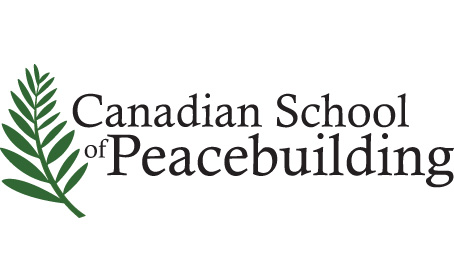









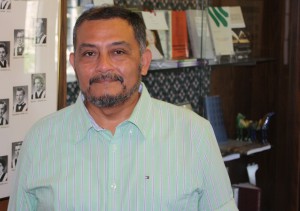
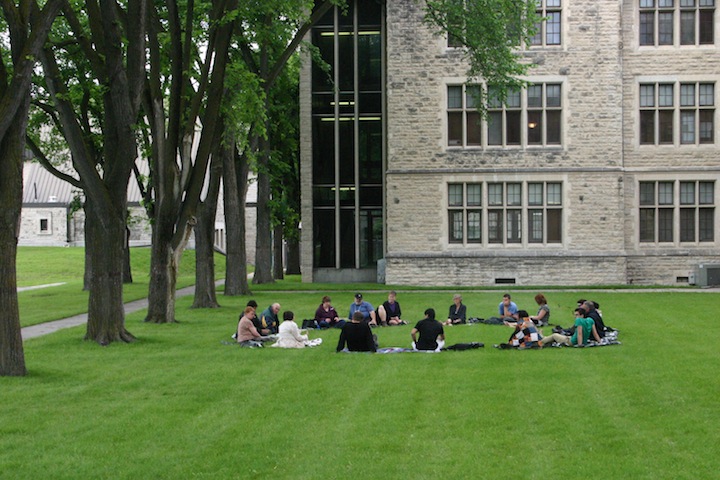

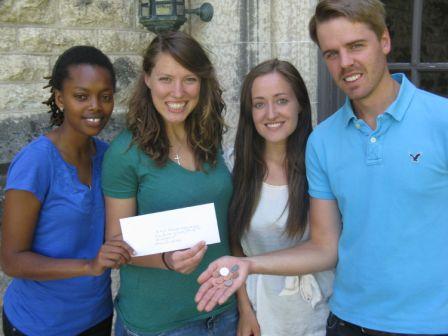
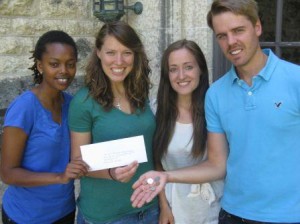 June 30, 2012 – A week ago, a small group of students from Canadian Mennonite University (CMU) and CMU’s Menno Simons College launched a campaign to challenge the federal government’s decision to begin denying supplemental healthcare coverage to refugees on June 30, 2012.
June 30, 2012 – A week ago, a small group of students from Canadian Mennonite University (CMU) and CMU’s Menno Simons College launched a campaign to challenge the federal government’s decision to begin denying supplemental healthcare coverage to refugees on June 30, 2012.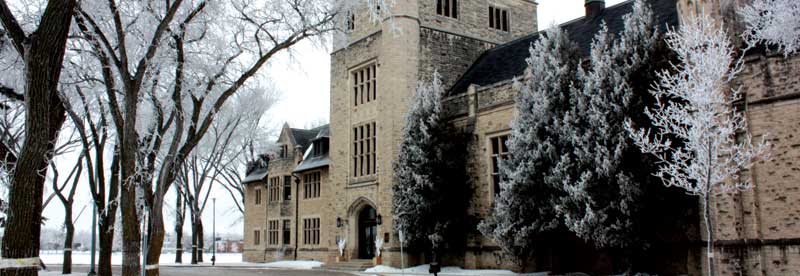
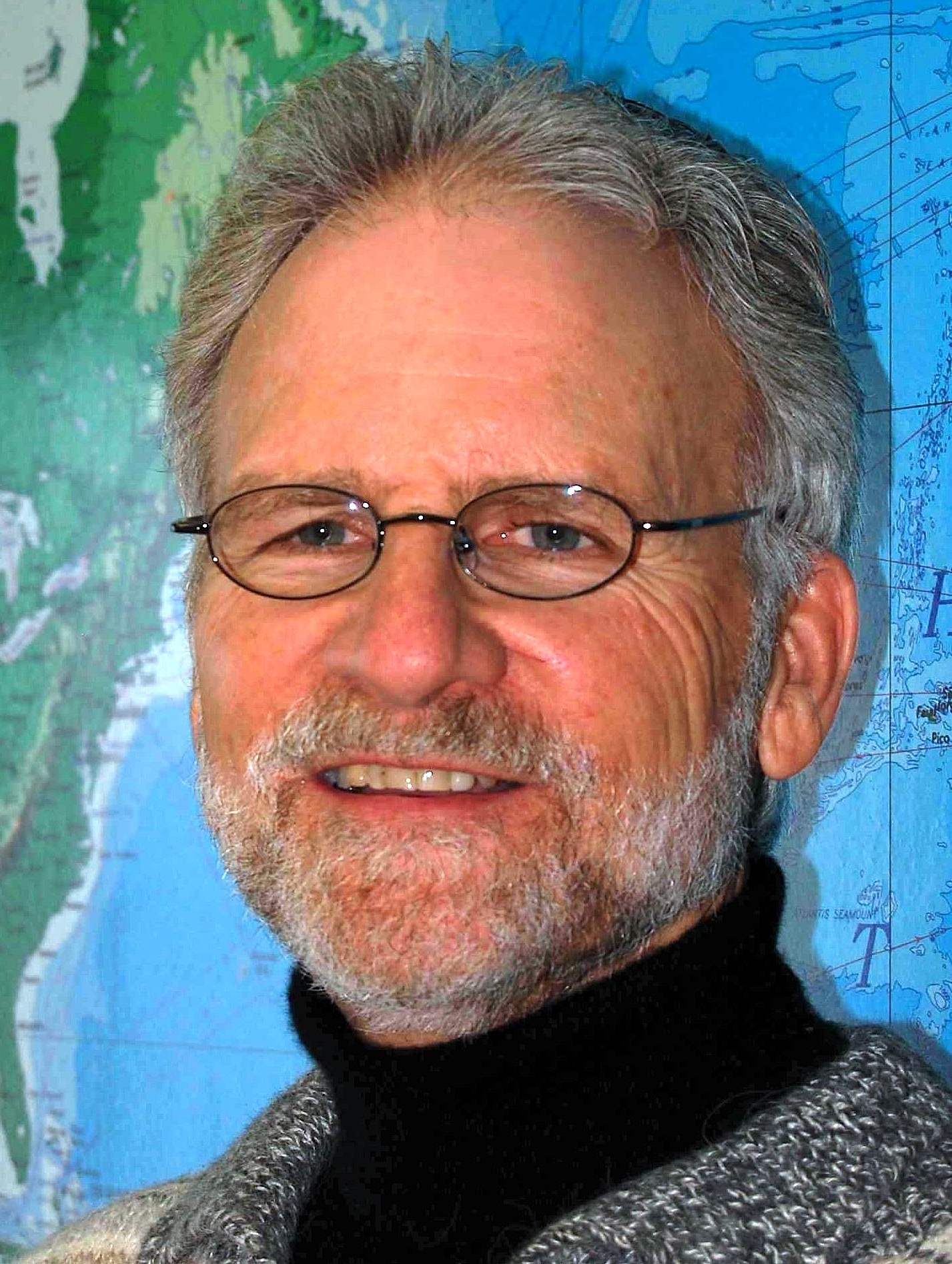
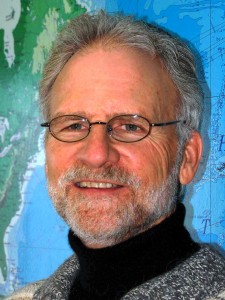 Stuart Clark
Stuart Clark